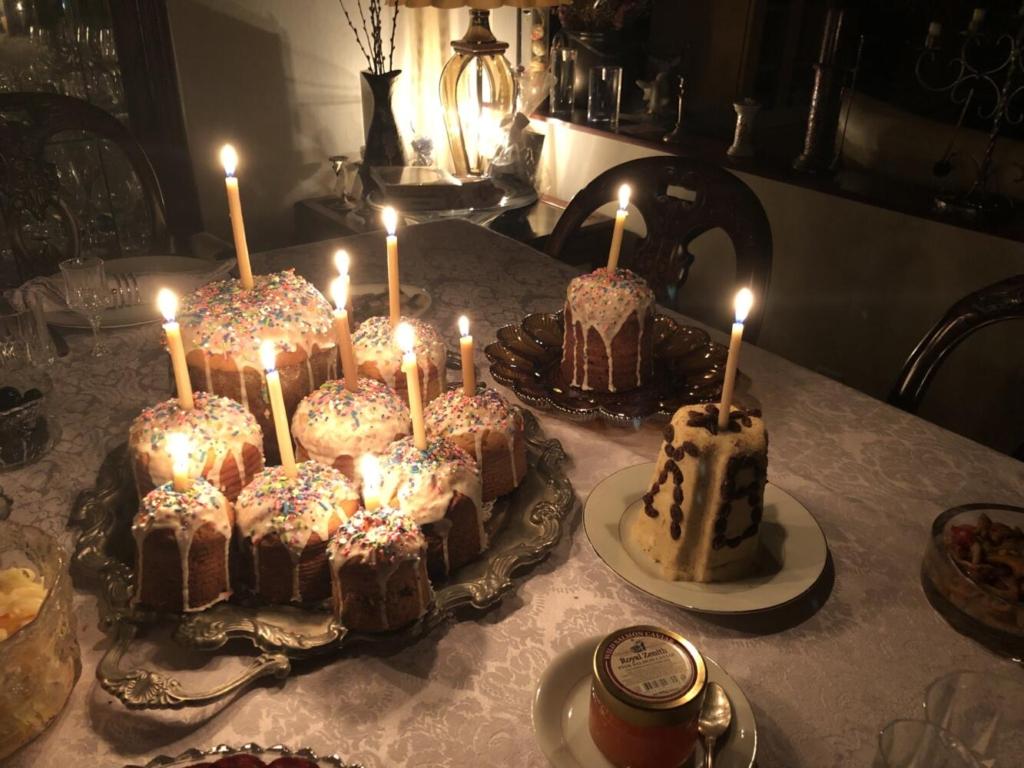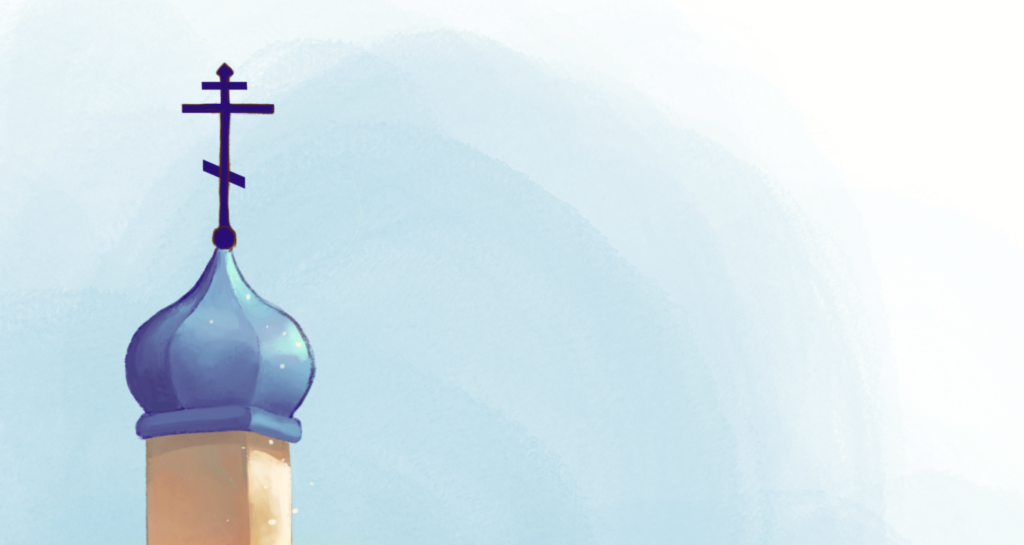The sour stench of hot vinegar fills the warm kitchen as my mom gently lifts a bright blue egg atop a wooden spoon out of a dark pool of colored water in a saucepan. She carefully places it on a paper towel by the stovetop with the rest of the batch.
Every year, I enjoy helping my mom with the process of dyeing eggs for Orthodox Easter, which we call Pascha (pahs-ha) in Russian. Like many traditional Easter foods, the eggs are a symbol of resurrection and are traditionally dyed a red color to symbolize the blood of Christ. However, it is common for many people, including my family, to dye eggs in other colors as well, such as blue, pink or purple — this twist on tradition adds more festive and secular colors to the holiday.
I watch my mom play the news for hours a day, desperate to stay informed on everything that is taking place.
Growing up in the United States, I’ve placed great value on traditions that connect me to my Russian culture — it was the first community I was a part of, providing me with a sense of familiarity, comfort and belonging.
Every year, Easter traditions begin with the Great Lent — known as the Velikiy Post since it is one of the most important fasts of the year — during which one abstains from consuming animal products and by-products, such as meat and dairy. While I did not fast when I was younger, my mom and grandma were always careful about what they ate when they participated. This fast lasts about seven weeks and is broken on Easter.

Easter celebrations, however, commence the night before, beginning earlier in the evening of Easter Eve when families bring food such as homemade kulichi — sweetbreads topped with icing and sprinkles — and baskets of dyed eggs to the church to be blessed.
A few hours after the blessing of the food, we gather again even later in the evening for the Easter service. While I haven’t been able to attend this service during the pandemic, I recall the sweet, warm scent of incense lingering in the air, the sound of delicate hymns flowing past our ears and the immense attention I had on the flame of my candle, cautiously watching it as people shuffled past.
After the service my family gathers to feast, often at my grandma’s house. We arrive to a table packed with food such as olivye and Russian vinaigrette salads, pickled cabbage, a spread of cheeses and deli meats, bread accompanied with butter and salmon roe, pascha (a sweet cottage cheese and raisin dessert), the blessed kulichi and dyed hard-boiled eggs. The pascha, kulichi and colorful eggs are special foods we eat only for Easter, as they are symbolic of the resurrection that the holiday celebrates.
This midnight meal is always festive as we indulge in food that had been forbidden to many family members over the Great Lent, share fun stories and play an egg-cracking game in which competitors attempt to crack the other’s egg with their own.mi
As conversations die down and the festivities come to an end in the late hours of the night, we help clean up the table and leave to go home. Although I know I won’t get much sleep, the holiday is much too important for me to care.
Once again the holiday will be celebrated under circumstances I never could have imagined.
For the majority of my life, I have come to cherish these annual festivities in late April through which I find comfort and connection. This year, however, with the current war in Ukraine, I expect Easter will carry more weight than years prior.
While I originally sat down to write this story as a way to shed light on the lesser-known Orthodox Easter, with the recent escalation of war in Ukraine, I feel that it is a topic that must be addressed. The war has definitely already had an impact on me, and will have an impact on my family’s Easter this year.

It is important to note that Orthodox Easter is celebrated by many Slavic cultures, including many Ukrainians, which is what adds so much more weight to the holiday. This means that while my traditions will be close to unbothered this year, the very same traditions of those in Ukraine who have gone through great pains will not be the same. This unsettling realization has left me wondering what Easter will be like this year.
My grandma is from Ukraine, my mom spent summers there in her childhood with my great-grandparents, I have family that moved from Ukraine many years ago and some more distant family that has recently found themselves amid the current terrors.
I watch my mom play the news for hours a day, desperate to stay informed, and my grandma wears two hair ties on her finger, one yellow one blue, to show her allegiance to the country. She has been informing student publications on her perspective and donating money to support refugees.
When Ukraine was first attacked, I spoke to a relative of mine, who I see almost every holiday, over the phone. With a voice full of pain and worry, she informed me about her father and brother who were in Ukraine at the time. Like many other Ukrainian citizens, they too will be sacrificing their usual celebratory traditions this year.
For the entirety of my life, Easter has been a source of light and celebration every spring, filled with cherished childhood memories and traditions I hold dear. During the pandemic, Easter was still a source of happiness and provided some sense of familiarity and normalcy, even despite the accommodations to traditions that were made. Once again the holiday will be celebrated under circumstances I never could have imagined.
The truth is, I don’t know how Easter will feel like this year. Amid all this uncertainty, I know that in a few weeks, with a cloud of uncertainty and worry looming over me, I will find myself back in my kitchen with my mom, dipping eggs into hot, dark water to compose our colorful basket again.
If you are interested in bringing aid to people currently in Ukraine, please consider donating to some of these organizations below:



